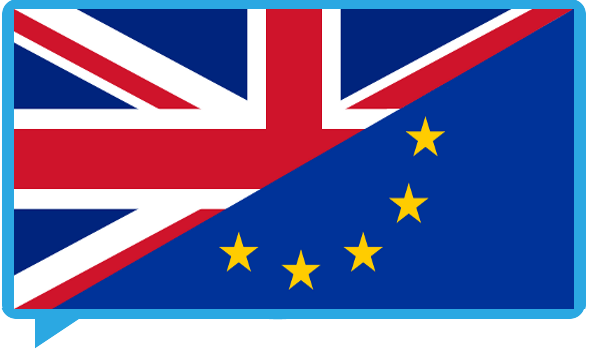The Pound Sterling to Euro (GBP/EUR) exchange rate softened on Wednesday after the Bank of England cut its economic growth forecasts for the UK economy. Despite that, many economists are looking into the future to the proposed referendum, which will decide Great Britain’s future in the European Union.
EU Referendum to Be Brought Forward?
After having won the UK general election, Prime Minister David Cameron’s Conservative government has not wasted any time in creating speculation as to when the referendum vote for Britain’s membership of the European Union will be held. Initially promised to be held in 2017 speculation is high that the vote may be brought forward to 2016 in order to avoid a clash with major votes in France and Germany. Such a move would reduce the volatility that will likely occur as the EU’s top two economies take to the polls.
Chancellor George Osborne has said that his government has a strong mandate to renegotiate on Britain’s membership. He added that the Conservatives will campaign to keep the UK in the union.
‘We go into these negotiations aiming to be constructive and engaged but also resolute and firm, and no one should underestimate our determination to succeed for the working people of Britain and indeed for the working people of the European Union,’ Osborne said.
What is there to negotiate?
When Brits were first given their say in 1975 on whether the UK should join the then so called European Economic Community (EEC) they believed that the nation would be joining a trading bloc. Instead, as the years advanced the EEC evolved into the EU, a body that seeks to bring its members under closer political union and essential form a European super state.
The EU has transformed from a simple trade agreement to an entity that seeks to impose laws upon its members and even wants to create its own military. Many Britons believe that they were sold a lie in 1975 and are opposed to the UK being absorbed by this European superpower wannabe. In the recent general election, the subject of immigration was a major issue, and it was in which the anti-EU political UKIP won a lot of support for.
As long as the UK remains in the EU it cannot control the number of European immigrants entering the country as under EU free movement laws every European citizen has the right to work and settle in another member state. It will be issues such as that, which the Conservatives claim they will try to renegotiate.
Mr Cameron will also be seeking to try to get Britain the option to opt-out of the EU’s ambitions of ever-closer political union. He will also try to win greater powers for national parliaments to block EU legislation. Other issues will be trying to free UK businesses from excessive interference from Brussels and to create safeguards so that changes in the Eurozone will be imposed upon non-Euro using EU members.
The chances of the EU acquiescing to Cameron’s demands however are slim. Renegotiation of free movement has already been dismissed by several prominent EU leaders. As for the EU giving up power to national parliaments, that too is highly unlikely as it strives on with its plans of ‘closer union’.
One thing that is certain is that the referendum will create significant volatility for the Pound Sterling to Euro exchange rate and there is sure to dirty tricks played by both the pro-EU and anti-EU sides of the debate.



